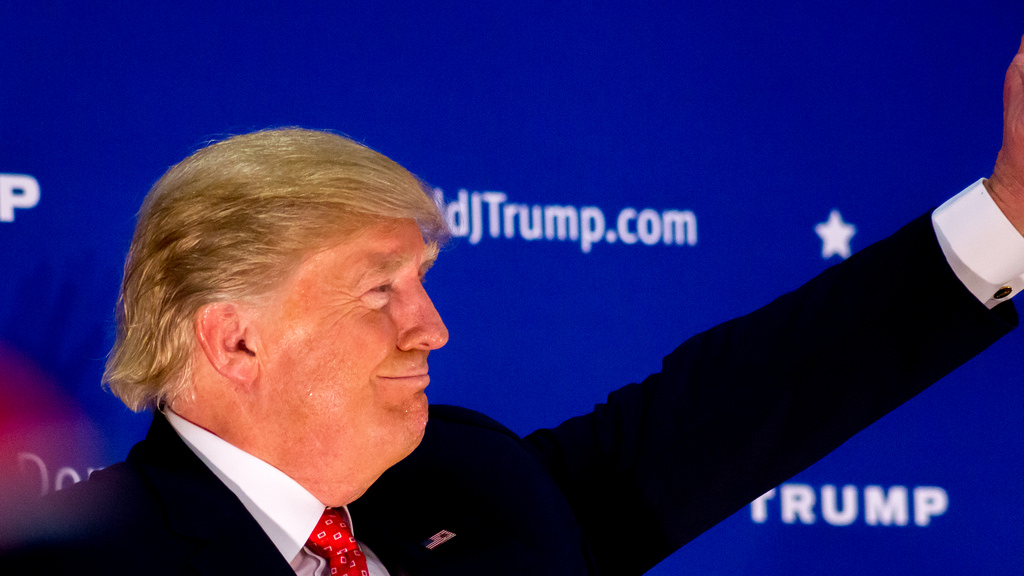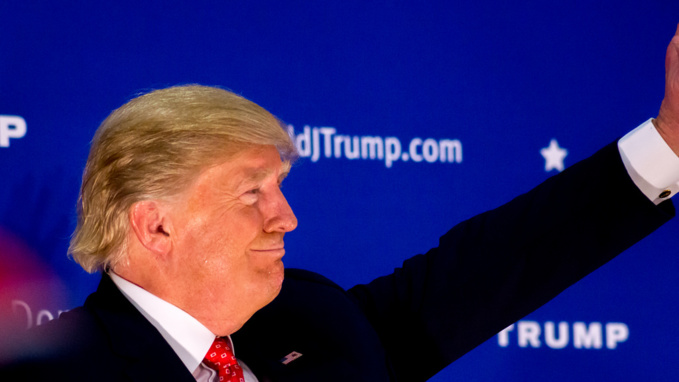The phrase, spoken by Donald Tramp last night during an interview with Bloomberg TV, has become one of the main news in the financial market today. Quotations of the largest financial corporations instantly reacted with a fall and subsequent rise as President of the United States said that the fragmentation of the largest banks is "what I am considering at the moment." "There are people who want to return to the old system, right? We are now thinking about this", Mr. Trump added, referring to the banking law of 1933, called the Glass-Steagall Act. The law, adopted as a result of the Great Depression and the financial crisis in the US, prohibited commercial banks from engaging in investment activities and jeopardizing physical depositors.
Supporters of the Glass-Steagall Act have been defending attempts to weaken it since the 1960s. Then, the government adopted amendments that expanded types of securities and transactions for commercial banks. As a result, in 1999, the Gramm — Leach — Bliley Financial Services Modernization Act was enacted, repealing the main provision of the 1930s law - a ban on combining commercial and investment activities for the same bank. Among its lobbyists were the country's largest banks, including Citigroup. Although the act was passed during the reign of Democrat Bill Clinton, the document was drafted by Republicans Phil Gramm, Jim Leach and Thomas Bliley. The Congress adopted the bill with overwhelming majority (362 in favor, 57 against, 15 abstentions) and so did the Senate (90 for, 8 against). The document was supported from both Republicans (207 - 5 - 10) and Democrats, albeit to a lesser extent (155 - 51 - 5).
Many analysts believe that abolition of restrictions in the banking activities became one of the reasons for the financial crisis of 2008. Then, the USA took measures to restrict possibilities for banks to combine investment and commercial activities and to tighten control over them, the Dodd — Frank Act. Yet, even then forcible separation of the banks did no took place.
Reactions of investors and experts to the words of Donald Trump almost coincided. Quotes of banks sharply lost 2-3%, then within minutes they played the drop back, and the trading session was already over. Experts noted that breaking the banks will be beneficial not only to investors, but also to the market. "There will be more competition on the market", Christopher Whalen, Head of consulting company Whalen Global Advisors, said in an interview with CNBC. "If investors have an opportunity to buy only JPMorgan’s shares (investment banking), and do not own Chase’s shares (commercial retail operations), it will be better for the shares. These are papers that will be traded 1.5-2 times more expensive to the current shares".
source: bloomberg.com, cnbc.com
Supporters of the Glass-Steagall Act have been defending attempts to weaken it since the 1960s. Then, the government adopted amendments that expanded types of securities and transactions for commercial banks. As a result, in 1999, the Gramm — Leach — Bliley Financial Services Modernization Act was enacted, repealing the main provision of the 1930s law - a ban on combining commercial and investment activities for the same bank. Among its lobbyists were the country's largest banks, including Citigroup. Although the act was passed during the reign of Democrat Bill Clinton, the document was drafted by Republicans Phil Gramm, Jim Leach and Thomas Bliley. The Congress adopted the bill with overwhelming majority (362 in favor, 57 against, 15 abstentions) and so did the Senate (90 for, 8 against). The document was supported from both Republicans (207 - 5 - 10) and Democrats, albeit to a lesser extent (155 - 51 - 5).
Many analysts believe that abolition of restrictions in the banking activities became one of the reasons for the financial crisis of 2008. Then, the USA took measures to restrict possibilities for banks to combine investment and commercial activities and to tighten control over them, the Dodd — Frank Act. Yet, even then forcible separation of the banks did no took place.
Reactions of investors and experts to the words of Donald Trump almost coincided. Quotes of banks sharply lost 2-3%, then within minutes they played the drop back, and the trading session was already over. Experts noted that breaking the banks will be beneficial not only to investors, but also to the market. "There will be more competition on the market", Christopher Whalen, Head of consulting company Whalen Global Advisors, said in an interview with CNBC. "If investors have an opportunity to buy only JPMorgan’s shares (investment banking), and do not own Chase’s shares (commercial retail operations), it will be better for the shares. These are papers that will be traded 1.5-2 times more expensive to the current shares".
source: bloomberg.com, cnbc.com



















